Civilization VII release date leaked ahead of Gamescom


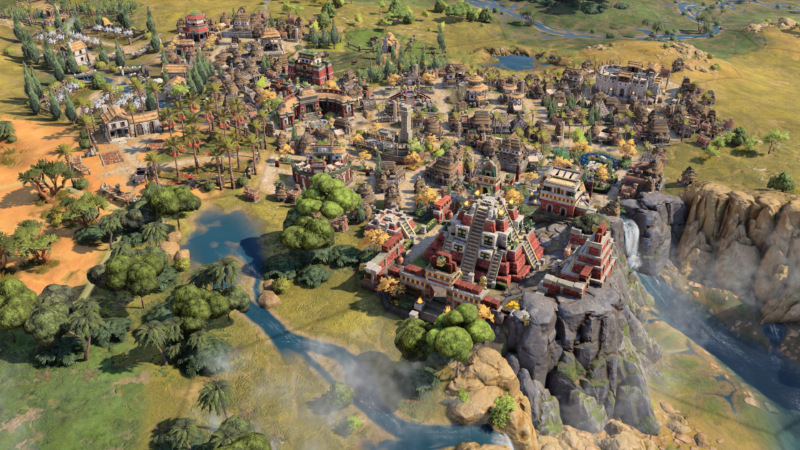
Enlarge / Firaxis has upped the ante on presentation for the cities. It's still a bit abstract and removed, but they have more vibrancy, detail, and movement than before. (credit: 2K Games)
2K Games provided a flight from Chicago to Baltimore and accommodation for two nights so that Ars could participate in the preview opportunity for Civilization VII. Ars does not accept paid editorial content.
From squares to hexes, from tech trees to civic trees, over its more than 30 years across seven mainline entries, the Civilization franchise continues to evolve.
Firaxis, the studio that has developed the Civilization games for many years, has a mantra when making a sequel: 33 percent of the game stays the same, 33 percent gets updated, and 33 percent is brand new.

For strategy fans, one of the biggest pieces of news from the barrage of summer showcases was the long-awaited announcement of a new Civilization game. We're certainly overdue; with Civ (like everything else) transitioning to a live service-lite model, brand-new releases are coming farther apart. The people who started frantically searching for Civilization VII around the time that Civilization VI launched can certainly sleep easy.
That being said, we don't have much information, or any specific information, aside from the fact that Civ VII is somewhere on the horizon. 2K and Firaxis have promised more details in August, which will inevitably lead to rounds of analysis, scrutiny, criticism, and planning. What are the key mechanics? Have they changed any of the things that people have complained about? Which countries will be available out of the gate? Will we once again be subjected to the worst people in the fandom complaining about how it "looks too much like a console game," whatever that even means? These are all questions waiting for answers.
I suspect that different people are anticipating different aspects. Some want to see what combat will look like. Some want to get a handle on unique units and civilization abilities. For me, it's all about the technology tree. As someone who's obsessed with being ahead of time in tech, this is what I always scope out first.
I anticipate being disappointed because no strategy game has ever gotten the tech tree exactly right. Frankly, I'm not sure perfection is even possible.
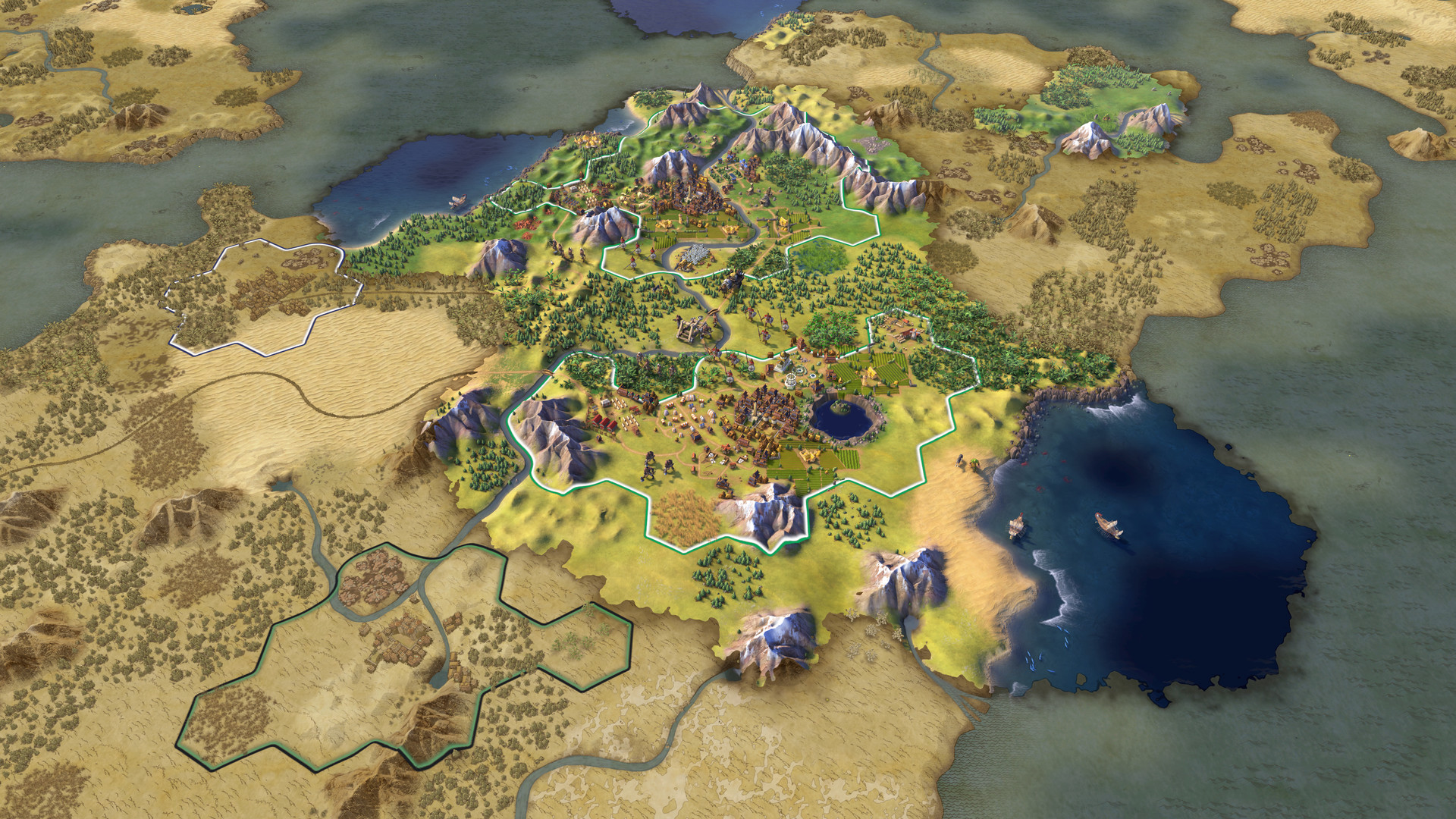
This isn't to say that they're not trying. Civilization VI featured two very profound changes to technology: The Eureka system, which added little mini-quests to speed up research on specific upgrades, and the splitting of "social" technologies into an entirely separate tree. Both of these were significant improvements, but they still failed to address all the problems I've noticed.
So let's discuss those problems and all the ways that a developer might address them.
Most people probably don't have serious problems with the Civilization tech tree. It's certainly a functional mechanic, and the trees have improved greatly from earlier versions, shedding useless upgrades and making the overall design more intuitive, for example. That doesn't mean there's no room for improvement, though.
The most obvious issue with tech trees is something that Firaxis has already been working on for a while now: balance issues. In older Civilization and Civ-type games, there were inevitably a handful of key technologies that any half-competent player would race toward, often ignoring everything else in the way. Often, these techs unlocked Wonders or their equivalents, which could be game-breakingly powerful in earlier games.
Both Civilization VI and Beyond Earth (and even Civ V to a lesser extent) showed signs of Firaxis trying to fix this. These games feature less powerful Wonders that are nice to have but not worth prioritizing, as well as more types of units to create more nuance in the combat. Even so, most victory types have certain essential developments that encourage this race for certain tech upgrades.
Strategy games in general can have some serious issues during the late game. Put bluntly, the end of any strategy campaign can be boring. Civilization games in particular suffer from the "next turn" problem, with a player pursuing a Space Race or other late-game victory type, absentmindedly tapping the "End Turn" button for the last thirty minutes or so.
While this isn't directly a tech tree problem, the two issues are tied together. End-game technologies should feel really impressive, but the player is far more likely to just ignore anything developed in the last fifty turns or so. Either you're already on track to hit a victory condition, or you're falling short and whatever unit or building you unlock isn't going to be around long enough to change that. Technologies developed in the fifty turns before are unlikely to play much of a role in the game, simply because everyone's strategy is largely set by that point.
The most abstract problem with the standard Civ tech tree is how artificial it feels.
This didn't matter all that much in older strategy games, which more resembled board games. However, strategy games have been developing in a more narrative-focused direction, and that includes Civilization. In Civ II, it was amusing that you could potentially start the Apollo program without having ever developed the wheel. It feels much more false in a modern game, and so does the idea that your country could so consciously focus its technological development.

While some variation on the tech tree is still standard in the strategy space, there have been plenty of games - ranging from very early 4X titles to recent indies - that took other approaches. Whether these are viable options depends on a wide range of factors, including the game's overall focus (big-picture strategy vs. turn-to-turn tactical), scope, setting (historical vs. speculative), speed, and complexity.
A few games have simplified their tech trees to the point where they feature linear tracks down which players can advance as far as they want.
An extreme example of this is Europa Universalis 4, which features three tracks for administrative, diplomatic, and military advancements. Each track consumes a different resource, so there are no real decisions beyond deciding when to unlock the next level. This is clearly too restrictive for a series like Civ; I'm not sure anyone would or should accept it. It works in EU4 because of that game's focus on strategy over tactics - technology isn't about specific choices, but rather a component of resource management.
A more robust version can be seen in some of the older Galactic Civilizations games, in which there are many tracks that represent specific upgrades - weapons, trade, industry, etc. This solves the problem of having to unlock undesired technologies - a player in need of happiness-generating buildings can simply pursue the appropriate track without needing to research anything else first. It's not a nice narrative fit for a historical game, though, and only feels natural in GalCiv because the upgrades are more abstract in its sci-fi setting. It's also worth noting that GalCiv has moved away from this in the most recent release.
Firaxis' own Beyond Earth experimented with a nonlinear tech tree. Rather than moving along in a fixed direction, players can develop their technology down three distinct paths representing not just different scientific disciplines, but different philosophical approaches to the relationship between humans and the alien planet. There's no specific endpoint, and many upgrades feature ample "leaf technologies" - nonessential upgrades that players only need to pursue if they are useful.
The tech web is a really interesting idea, but like most things in Beyond Earth, it's not exactly well-regarded.
I think one of the problems was the attempt to connect technology with philosophy. The idea was that players would select whatever upgrades were immediately useful, and this would guide them down one of the three paths. For example, a player in bad starting terrain would seek out technologies that helped clear that terrain and make it useful, pushing them down the Purity path. The problem is that there were perks (including unique victory conditions) that really required the player to commit to one of those three paths from an early point in the game, so it wasn't exactly a natural exploration.
Besides that, this is another situation where it just works better in a speculative setting than a historical one. Real-life technological development isn't as linear as people assume, but in a history-themed game, we still expect events to proceed in a manner similar to history.
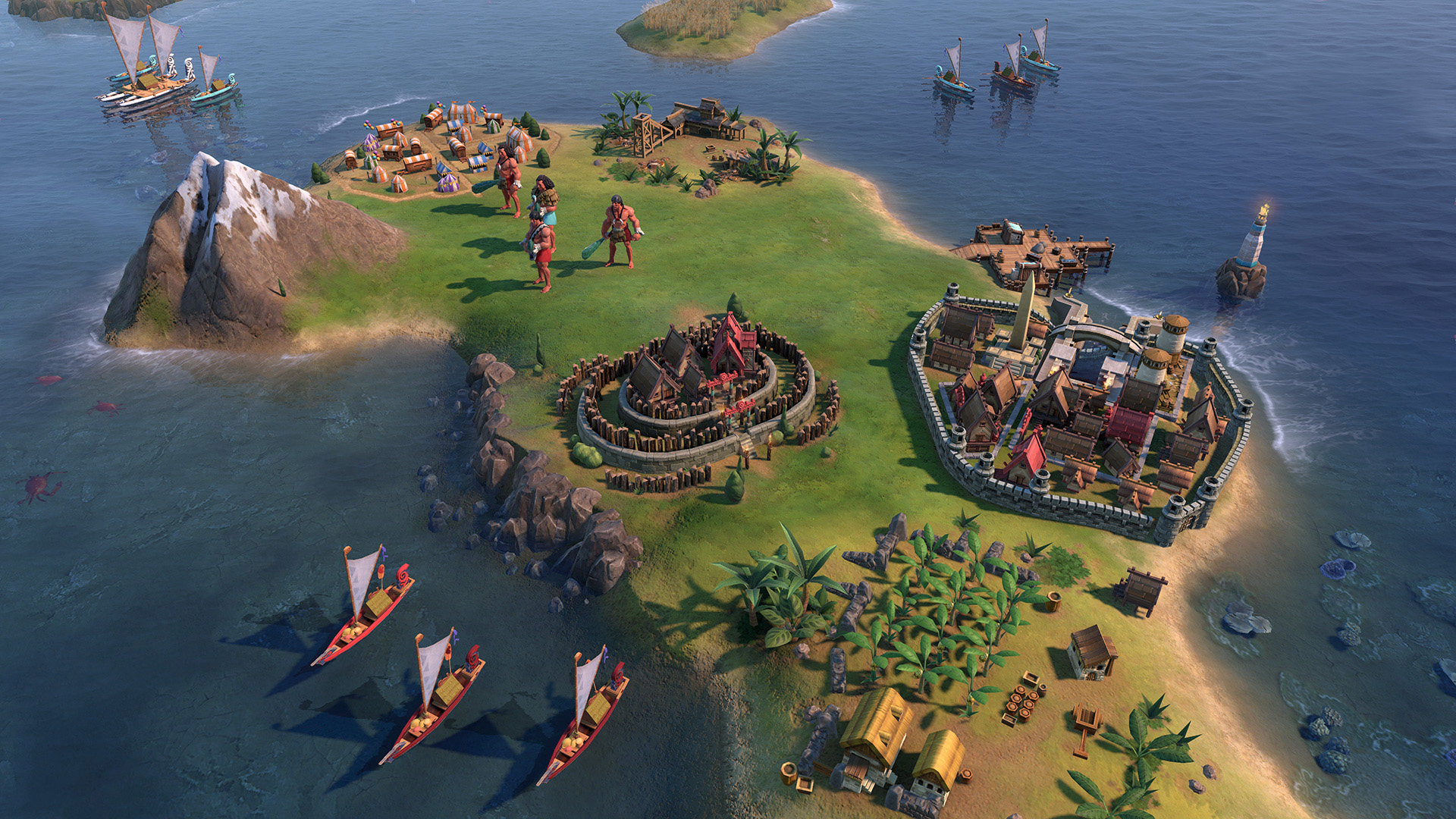
The tiered approach, as far as I know, has never been tried in this context. Tiered upgrades have been used as a replacement for skill trees (for which a tech tree is just the strategy equivalent), and even the Civilization series has experimented with tiers, such as in the ideology system in Civ V. The notion is that the player would not need to research specific precursor technologies to unlock the next one, but would unlock a new era of technologies after researching enough from the previous era.
Tiered upgrades are sometimes used in other games (such as action RPGs) because they are seen as less restrictive than skill trees. With tiers, the player isn't forced to take unnecessary upgrades to gain access to desired ones. Such a system would allow for a lot of flexibility while still keeping clearly defined eras in place.
The drawback (and the reason I think this hasn't been tried) is that it doesn't seem all that narratively satisfying. Research is an iterative process, and a tiered system would allow a player to skip what would seem like keystone technologies. Honestly though, if it's done right, a tiered tech upgrade system might actually be more realistic than a conventional tree, as it would capture real-world concepts such as the advantage of backwardness. Every society didn't have to invent the wheel ex nihilo - you ultimately know what your neighbors know.
Alpha Centauri added an interesting twist to the tech tree, one that was radical enough that Firaxis enabled players to turn it off (and, full disclosure, I usually did). Technologies in Alpha Centauri are divided into four categories - Explore, Discover, Build, and Conquer, loosely mapping onto the 4X concept. Rather than researching specific techs, the player sets research priorities and then gets either a tech in that category or a precursor to one. Thus, a player looking to develop an economic base might set Discover and Build as priorities to gain new base facilities.
So what was so wrong with this concept that no one bothered trying it again for almost a quarter of a century? For one, Alpha Centauri has an old-school tech tree, with Secret Projects (their equivalent of Wonders) that can be so disgustingly powerful that some strategies are designed around them. When a single Project can make or break your playthrough, blind research is a massive disadvantage.
Alpha Centauri's tech tree is also big and messy, and that makes it too unintuitive for this system to work as intended. Say you're focusing on your military, so you do the sensible thing and focus on Conquer tech. You might not get a single Conquer tech for a while if you lack the prerequisites for them (which can include techs in the other three categories), but it doesn't matter because most of the weapons, armor, and unit types are unlocked by other tech types. It's simply not intuitive enough for blind research to work.
I think some variant of blind research could work with Civ's current style of tech tree. The more streamlined and balanced trees from the last few games are already split nicely into de facto categories (transport, civic, military) that make this much more sensible. But would players accept it? As I said, even the original version had an option to go back to the standard tree.
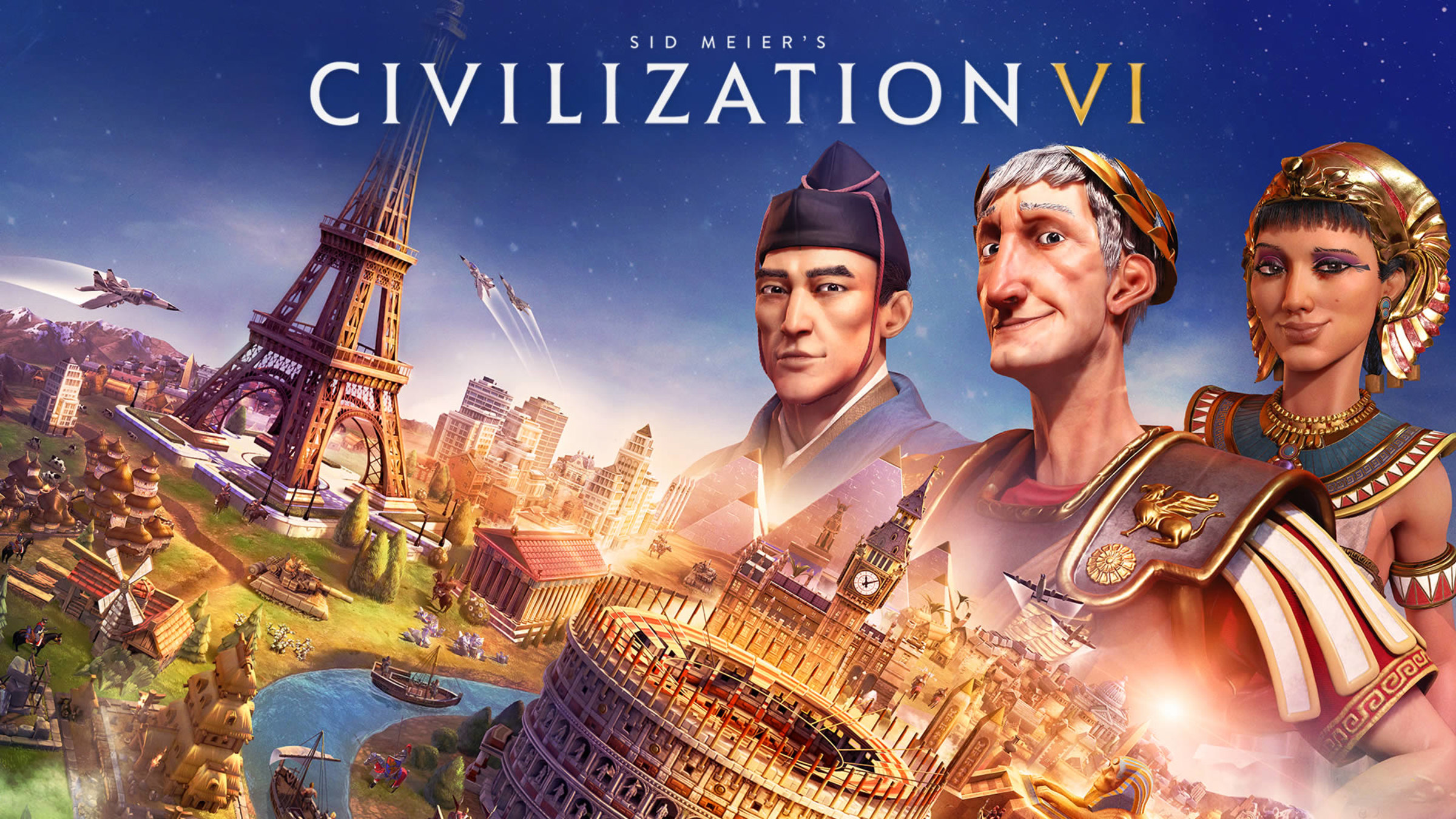
The most interesting prospect is foregoing a tech tree altogether. I don't mean eliminating tech upgrades altogether, though this has been done; tech-free strategy games are restricted to those with unorthodox settings, such as the high fantasy setting in Master of Magic. What I mean is getting rid of a purposeful tech tree in favor of tying tech upgrades directly to the player's actions.
This is another concept that Firaxis has played with. The Eurekas and Inspirations of Civ VI are kind of a lightweight version of this concept. Research speeds up based on how the player's civilization is growing - a country with cities on coasts will naturally develop sailing faster, those with lots of archers will gain access to better bows, and so on. It's an interesting way to blend mechanics and narrative in a way that really suits the new direction strategy games have been growing.
Would it be possible to go farther? I have seen games in which tech development is based wholly on the player's natural actions, but these tend to be city builders and base builders - distant cousins of strategy, with similar design principles but very different objectives and sensibilities. In a game that's innately competitive, a narrative-based tech tree becomes just another thing to manipulate, which is exactly what happened with Eurekas in Civ VI.
This is maybe the most interesting possibility, but also the hardest to put into effect. Maybe someday we'll see a system like this, but probably not in Civilization.
Most of the problems I've identified don't necessarily demand radical changes to the tech tree. A standard tree with some under-the-hood adjustments can accomplish the same thing without upsetting anyone.
I've already explained one way that Firaxis has done this - less powerful Wonders to discourage tech tree races. Other issues can be addressed in similar ways. Third-act issues can be overcome by staggering the emergence of game-changing developments. The slow pace of the endgame can be addressed with more flexible victory conditions that require more attention and input from the player. The narrative issue is trickier, but a few changes in how tech trading works and a sprinkling of random events could do wonders here.
Firaxis will almost certainly experiment with the tech tree, but I don't expect any game-changing differences. My guess is that you'll see an expansion and refinement of the Eureka system, more leaf techs to add flexibility, and perhaps some new mechanics to make the technology and civics trees feel more distinct. They may not even go that far, and could just move a few things around.
Why not make more profound changes? As much as we like to talk about "balance" as this perfect end-state of video games, it's not clear that the actual consumers really care. To the people who end up buying Civilization VII, what's important is that the tech tree be creative and intuitive, and these are things that Firaxis does reasonably well.
Honestly, it's probably for the best. I said at the beginning that perfection is likely impossible. It doesn't matter how flawlessly balanced your system is, someone is going to find a way to break it. For many strategy fans, that's the whole reason they gravitate toward these games in the first place. Make it perfect, and you're just going to encourage them to try harder.
So while I'm curious as to what Firaxis might pull, I'm not sweating too much over it. After all, I'll likely end up as one of those people trying to break the system.
It might not be unreasonable to ask if we really need a Civilization VII, but there it is, having been announced at Summer Games Fest. We’re getting Civ VII. Do we want lucky number 7?
And I don’t even mean that in some of the more obvious ways, like “do we need another 4x strategy title?” I mean, sure, my Steam library already has enough unplayed or underplayed titles in it, why would I add more?
But there is always room for another GOOD game in the world, and few titles have engendered as much support as the Civilization series. Just last year I went back to see if I could play all of the Civilization series variations. And I could. And you can to, if you have the patience.
Maybe what I mean is whether or not we really need another Civilization launch experience.
As a day one purchaser of Civilization versions II through V, I can attest that the experience became remarkably predictable.
The game will, of course, be extremely resource intensive. Traditionally a Civilization title will barely run on any but the most current hardware and won’t run at its full potential until we’re a few more processor generations down the road.
That will lead to turning down the graphical settings… and the graphics will always be completely overblown with tiny levels of detail that you will see once, then cease to notice or care about half a dozen games into your experience… and being unable to take on max opponent matches unless you are willing to patiently wait for the computer players to get on with it already.
Then there will be the bugs and crashes. Fortunately, we’re now in an era where patching is automated… though that has the perverse effect of many publishers just pushing whatever they have on launch day with an eye towards fixing things going forward. So the game crashing on day one is practically a hallowed tradition and one I expect will continue.
The fact that the plan is to ship on PlayStation, XBox, Switch, Windows, MacOS,and some flavor of Linux (probably the SteamOS version) doesn’t make me feel better about stability. I mean, one of the traditional broken aspects of a Civ launch is some portion of the multiplayer, and adding in the promise of full cross-platform play just multiplies the things that could go wrong along with the compromises that will need to be made.
As an aside, while I have played a number of titles that work well cross-platform, I have also had to endure my share of UI choices that are slow and awful on the PC, but which were put in place because of console requirements. I hope Sid doesn’t forget where most the units are going to sell.
And then there is the game itself, which has reached a state where it seems to require a couple of expansions before it really settles down to a solid representation of the vision the team had when they set out… or to be really enjoyable… though Civ VI just became more gummed down in minutiae for me. Will what we get in 2025… and you can bet it will be more like Holiday season 2025 than New Years Day 2025… be worth rushing out to grab?
Then what will the price point be? The new normal is $70, but there will no doubt be additional premium versions in the $100-$150 range that add additional civs and other digital items. And Sid might decide it is time to roll the dice with $80-$100 as an initial price for a series so well known.
In with that initial price, plus the day one DLC, plus the forthcoming paid expansions, there will no doubt be a game pass to buy as well.
As an MMORPG player, the who concept of the “game pass” still isn’t clear to me. It feels like a bet, like you pay up front with the promise you’ll get all the new content for the next year covered, but there is no guarantee as to what that content will be and so it could be “great, best purchase ever” or it might mark me as a huge sucker. And the industry hasn’t done much to reassure me on all of that.
Finally, we get to the big question, the giant freaking elephant in the room, the raison d’etre that must underlay this whole announcement… after six runs at the Civilization idea… or eight if you count Alpha Centauri (which you absolutely should) and Beyond Earth (which you can freely ignore in my book)… what is going to be new, different, or otherwise make what might be iteration 9 stand apart from its predecessors?
Well, Sid sure as hell isn’t saying. The line on the official site is:
The award-winning strategy game franchise returns with a revolutionary new chapter. Sid Meier’s Civilization VII empowers you to build the greatest empire the world has ever known!
And the teaser trailer does do much save imply that there will be the usual overwrought cut scenes that you’ll turn turn off after a couple of runs because they’ll become dull on repetition or crash your system… both options have precedent.
I have been turning those options off since the palace thingy in the original Civilization.
I mean, I like the idea of reworking the franchise, but “revolutionary new chapter” could mean many things. In my head I would like a reexamination of what may the early titles great and keeps them playable to this day in a way that might unencumber the state of play now exemplified in Civ VI.
But, with the state of tech right now, it might mean AI, blockchain, VR headsets, and an attempt to create a metaverse 4X title. Has anybody seen Marc Andreesen skulking around? That would surely be a bad sign. I don’t think Sid Meier would need to stoop to that level, but then again, I could say the same about some other industry luminaries who have sold out early and often in the last decade.
We can also add in the fact that Sid isn’t getting any younger. He’s Jerry Seinfeld’s age, and look how out of touch Jerry has become, an old man yelling at kids to get off his damn lawn. And while I can’t speak to Sid’s views on cancel culture and the ability of comedians to be offensive, it does feel like, at the historical rate of release for Civilization titles in the 21st century, he might not be around for a Civilization VIII.
As such, he may see this as his legacy project and be tempted to pour in everything he has ever dreamed about in the past. It is a temptation. I hope he can restrain himself and maybe channel a bit of the Steve Jobs “less is more” philosophy… though who am I kidding? What Civ title has ever showed such restraint in any quarter?
All of which is a whole lot of speculation because, aside from the teaser, we won’t get any REAL information about the game until they do a game play demo in August. So we’ll have to wait.
In the mean time, I went over to Steam and did as commanded. It is now on my wishlist. For all my gripes above, I want to see where this is going.
One last roll of the dice Sid, for you and me both. You might not have it in your to make another Civ title after this and, given the history of Alzheimer’s in my family, I might not have it in me to wait around and play another Civ title. At some point “one more turn” will become “one last turn” for the both of us, so make it good.
Related:
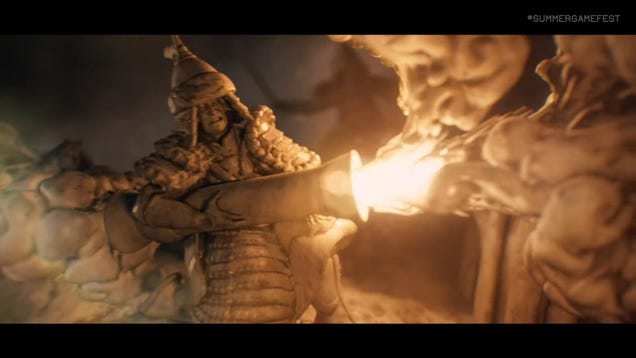
After leaking ahead of the show, 2K officially unveiled Civilization VII at Summer Game Fest. We already knew 2K was planning on announcing something big at the show, and thanks to an apparent flub on the publisher’s website earlier today, we knew ahead of time that Civilization VII was likely to show up at the event.…



In Nexus War Civilization, if you’re going to rebuild your city, you need resources. That takes a considerable amount of effort, time, and manpower. Luckily, with just a few Nexus War Civilization codes, you can start off on the right foot.
Codes are a fantastic way to get resources in the game, which is incredibly handy if you just started playing. Naturally, you should redeem them in Nexus War Civilization before they expire.